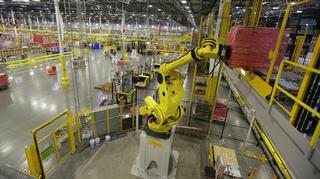Warning: don't read too much about the future of jobs in an era of Artificial Intelligence if you are—psychologically speaking—in a dark place. If you're a lover of the arts and humanities, for example, you should probably go full hermit in the basement of a university library with plenty of provisions (but no WiFi). If you greet all technological advances with gee-whiz enthusiasm, you'd best avoid long conversations with people who make a living driving trucks or reading X-rays. If you're an antiglobalization protectionist, get ready to look with longing on a time when the biggest threats to jobs were NAFTA and an ascendant China. And even if you believe in the long-term benefits of what economist Joseph Schumpeter called creative destruction—as I do—prepare to have your convictions tested.
People have feared artificial intelligence since Mary Shelley introduced the world to Dr. Frankenstein's hideous creature. The Luddites, who battled against the automated loom in the early nineteenth century, are now regarded as so wrongheaded that they have an economic error named after them. The Luddite fallacy refers to the fact that in the long run, disruptive technologies create more jobs—not to mention reduce drudgery, save lives, expand leisure, and enrich us all. Optimists argue that AI, too, will bring material and social progress. Things will cost less; people will live longer. They'll have more time to enjoy their hobbies and interests. The work-life balance problem? Solved—once robots do the laundry, drive the kids to soccer, and take over the less interesting but time-consuming tasks at the office. Albert Wenger, a venture capitalist at Union Square Ventures, is not alone in seeing AI as “a development that will free us to do lots of incredible things that are more aligned with what it means to be human.”
Read Full Article »



